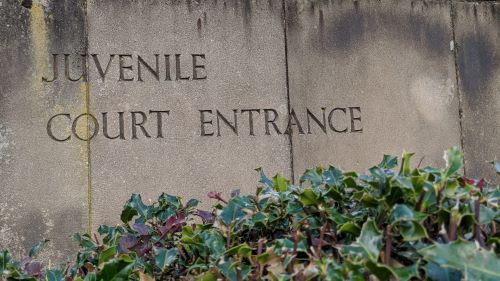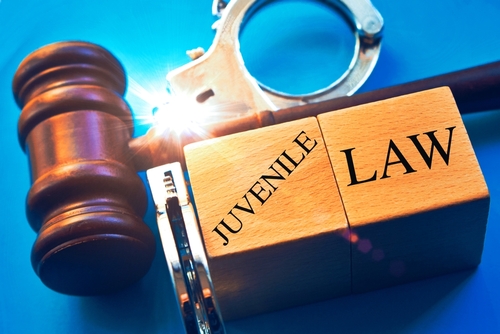When Your Child Faces a Juvenile Felony in Texas: What Families Need to Know to Protect Their Future
Facing a juvenile felony charge in Texas is one of the most frightening experiences a family can endure. When your child is accused of a serious offense, every decision — from the initial police questioning to the court hearing — can shape their future. The Texas juvenile justice system aims to balance rehabilitation with accountability, but it can feel overwhelming for parents trying to protect their child’s rights and future opportunities.
Unlike the adult criminal process, the juvenile system has its own rules, procedures, and potential outcomes. Penalties for a juvenile felony can include probation, detention, or even transfer to adult court in severe cases. Without proper legal guidance, families may struggle to understand what’s at stake or how to navigate the complexities of Texas law.
At Cowboy Law Group, our experienced juvenile criminal attorney in The Woodlands provides compassionate, strategic defense for minors accused of serious offenses. We believe every young person deserves a second chance — and we work tirelessly to ensure that one mistake does not define their future. Our legal team helps families understand the legal process, build a strong defense, and pursue rehabilitation-focused outcomes whenever possible.
This guide will walk you through the key aspects of juvenile felony charges in Texas, explain how the justice system handles these cases, and highlight the importance of working with an experienced juvenile defense attorney to safeguard your child’s rights.
How Age and Jurisdiction Affect Juvenile Felony Cases in Texas
In Texas, the juvenile court system primarily handles offenders between the ages of 10 and 17. This jurisdiction is crucial in determining how the law classifies and prosecutes young individuals accused of a juvenile felony or other serious criminal offense. Understanding where your child falls within this age range helps you know what to expect — and how to prepare an effective defense with help from a juvenile criminal lawyer in The Woodlands.
Juvenile Felony Charges and the Age Range for Texas Offenders
Under Texas juvenile justice law, offenders between the ages of 10 and 17 are typically processed within the juvenile justice system, not adult criminal court. This approach prioritizes rehabilitation over punishment, focusing on helping minors learn from mistakes, complete education programs, and rebuild their futures. A skilled juvenile criminal lawyer can ensure your child receives fair treatment under the law and isn’t unfairly penalized.
When Juvenile Felony Charges Lead to Adult Criminal Court at Age 17
Once a youth turns 17 in Texas, they automatically fall under the adult criminal justice system. This shift has serious implications — any felony charges after their 17th birthday are prosecuted in adult court, where penalties are harsher and permanent records can limit future opportunities. If your child faces this transition, having an experienced juvenile criminal lawyer in The Woodlands is critical to protecting their rights and minimizing long-term damage to their life and reputation.
Juvenile vs. Adult Justice Systems
The juvenile court system in Texas is fundamentally different from the adult criminal justice system. Understanding these differences is crucial for families navigating the challenges associated with juvenile felony charges.
Emphasis on Rehabilitation in the Texas Juvenile Justice System
In Texas, the juvenile justice system prioritizes rehabilitation over punishment. The goal is to guide young offenders toward productive futures. Programs aim to address the underlying issues contributing to delinquent behavior. This approach includes counseling, education, and community service. It recognizes that juveniles are still developing and can change with the right support. Addressing juvenile delinquency through these programs is crucial to prevent future criminal behavior and help juveniles reintegrate into society.
Differences in Punitive Measures Between Juvenile and Adult Criminal Justice Systems
Punishments in the juvenile system are generally less severe than those in the adult system. For serious offenses, juveniles may be transferred to adult criminal court, where they face adult-level penalties and a different set of legal procedures. For instance, while adult felony convictions can lead to lengthy prison sentences, juvenile offenders may face probation or placement in rehabilitation facilities. The focus is on helping juveniles learn from their mistakes rather than strictly punishing them. This distinction reflects the belief that young people have the potential to reform and reintegrate into society.
In contrast, the adult criminal justice system often emphasizes retribution and deterrence. Offenders face harsher penalties, including significant prison time and criminal records that can affect their futures. Understanding these differences can help families make informed decisions about legal representation and strategies in juvenile cases.
Types of Juvenile Felony Offenses and Crimes in Texas
Common juvenile crimes in Texas range from minor misdemeanors to serious felonies. In Texas, juvenile offenses are categorized primarily into two types: Child in Need of Supervision (CINS) and delinquent conduct. Understanding these classifications is crucial for parents and guardians navigating the juvenile justice system.
Child in Need of Supervision (CINS) and Non-Criminal Juvenile Behavior
CINS refers to behaviors that are deemed problematic but do not necessarily constitute a crime. These may include:
- Running away from home: Youth who leave their residence without parental permission may be classified under CINS.
- Truancy: Regularly skipping school can lead to CINS charges.
- Curfew violations: Failing to adhere to local curfew laws is another example of CINS behavior.
CINS cases often focus on intervention and support rather than punishment. The goal is to address the underlying issues that lead to these behaviors, often involving family counseling or community service.
Delinquent Conduct and Juvenile Felony Charges Under Texas Law
Delinquent conduct involves actions that are considered criminal offenses under Texas law. These offenses can range from minor infractions to serious felonies. Common examples include:
- Theft: Stealing property can lead to various charges depending on the value of the items taken.
- Assault: Engaging in physical altercations can result in charges that vary in severity.
- Drug offenses: Possession of controlled substances is taken seriously and can lead to significant legal repercussions.
- Aggravated offenses: More severe actions, such as aggravated robbery or sexual assault, fall under felony charges.
Levels of Juvenile Felony Charges in Texas
Juvenile felony charges in Texas come in several levels, each carrying its own set of penalties and long-term consequences. For parents and families, understanding these distinctions is vital — because the outcome of a juvenile felony case can determine whether a child receives rehabilitation or faces life-altering punishment in the Texas juvenile justice system. A knowledgeable juvenile criminal lawyer in The Woodlands can help you navigate these classifications and protect your child’s future.
Capital Felonies: The Most Severe Juvenile Felony Charges
Capital felonies are the most serious criminal offenses under Texas law, often involving violent or life-threatening acts. Examples include murder, aggravated sexual assault, or an aggravated controlled substance felony.
Juveniles charged with these crimes face some of the harshest legal scrutiny possible. While the juvenile system emphasizes rehabilitation, capital felony cases may still lead to life imprisonment or, in extreme cases, transfer to adult court.
The legal complexities surrounding capital felonies demand immediate action — having an experienced juvenile felony defense lawyer can make the difference between a rehabilitative sentence and a lifetime of consequences.
First-Degree Felonies: Severe Crimes with Lasting Impact
First-degree felonies are also extremely serious and include crimes such as aggravated robbery and sexual assault. These charges carry potential sentences ranging from 5 to 99 years in prison if tried as an adult. Even in juvenile court, the penalties can involve extended detention and lifelong stigma.
A skilled juvenile defense attorney can challenge the evidence, push for treatment over punishment, and fight to prevent your child from being transferred to adult court — where sentences are far harsher and rehabilitation opportunities are limited.
Second-Degree Felonies: Serious but Defensible Offenses
Second-degree felonies, such as robbery or aggravated assault, carry penalties of 2 to 20 years in prison for adult offenders. For juveniles, the court often weighs intent, age, and circumstances. However, the risk of long-term detention or probation remains high.
Families often underestimate these cases until it’s too late — but a strong defense from an experienced juvenile criminal lawyer in The Woodlands can expose weaknesses in the prosecution’s claims and protect your child’s rights.
Third-Degree Felonies: Still Serious, Still Life-Changing
Third-degree felonies may be the least severe category of felony charges, but they still carry devastating potential outcomes. Common examples include possession of a controlled substance or certain forms of theft. Sentences range from 2 to 10 years for adults, and juveniles can face significant detention time or probation.
Even a single juvenile felony conviction can affect educational opportunities, scholarships, employment, and housing. Early legal intervention from a juvenile defense lawyer can often prevent these cases from escalating.
Protecting Your Child’s Future After a Juvenile Felony
Every level of juvenile felony in Texas represents a serious legal and personal crisis — but your family doesn’t have to face it alone. At Cowboy Law Group, our attorneys are dedicated to defending juveniles accused of serious crimes and guiding families through the legal process with compassion, strategy, and strength.
Determinate Sentencing for Juvenile Offenders
Determinate sentencing is a significant aspect of the juvenile justice system in Texas. This approach provides a clear framework for how long a juvenile offender may be confined based on the severity of their crime. Understanding this process is crucial for families navigating the legal landscape.
Explanation of Determinate Sentencing and Grand Jury Involvement
In Texas, determinate sentencing allows for specific terms of confinement for juvenile offenders. This means that the court sets a fixed length of time for the juvenile to serve, which can range from a few months to several years, depending on the nature of the offense.
In cases involving serious offenses, a grand jury may be involved. The grand jury reviews the evidence presented by the prosecution to determine if there is enough justification to charge the juvenile with a felony. If the grand jury decides to proceed, it can lead to more severe consequences, including determinate sentencing. The Texas Juvenile Justice Department oversees these cases, ensuring that the legal procedures are followed and focusing on rehabilitation.
Potential Sentences for Different Degrees of Felony Charges
The potential sentences for juvenile felony charges vary based on the degree of the offense. Here’s a breakdown:
- Capital Felonies: These are the most serious charges and can lead to confinement in a secure facility until the juvenile reaches 21 years of age.
- First-Degree Felonies: Offenders may face confinement for a minimum of 5 years up to 40 years, depending on the circumstances.
- Second-Degree Felonies: Sentences can range from 2 to 20 years.
- Third-Degree Felonies: These typically carry a sentence of 2 to 10 years.
Each case is unique, and the final sentence can be influenced by various factors, including the juvenile’s prior record, the specifics of the crime, and the recommendations from the juvenile defense attorney.
Frequently Asked Questions About Juvenile Felony Charges in Texas
1) Why Should I Retain A Texas Juvenile Criminal Lawyer?
Protecting Constitutional Rights
We safeguard your child’s fundamental protections under the U.S. Constitution and the Texas Constitution. From initial contact with law enforcement through juvenile court proceedings, we ensure:
- Proper Miranda warnings and lawful interrogation
- Protection against unlawful searches or seizures
- Fair treatment during detention hearings and bond reviews
Specialized Juvenile Felony Defense
Juvenile law differs significantly from adult criminal practice. Our team understands the unique procedures and sanctions governed by the Texas Juvenile Justice Department and state statutes. We:
- Navigate juvenile court jurisdiction and Austin-area county attorneys
- Advocate for diversion programs, community service, or counseling instead of incarceration
- Challenge inappropriate adult certification or excessive felony charges
Minimizing Harsh Consequences
Felony offenses for minors can trigger a lifetime of collateral issues—impacts on education, employment, and social development. We work to:
- Keep cases in juvenile court to avoid adult prosecution
- Negotiate reduced charges or deferred adjudication to prevent a permanent juvenile record
- Seek alternative sanctions focused on rehabilitation, not punishment
Streamlining Process and Negotiation
Delays in juvenile matters prolong stress for families. Our 24/7 availability and experienced advocates help:
- Expedite detention and transfer hearings
- Coordinate bond arrangements and jurisdictional challenges
- Engage county attorneys in constructive plea discussions
Dedicated Support and Peace of Mind
Facing youth criminal charges is daunting. Cowboy Law Group brings more than two decades of courtroom grit and cowboy spirit to every case. We:
- Communicate clearly at each stage
- Provide personalized attention and emotional support
- Uphold the highest standards of honesty, integrity, and empathy
In retaining our Texas juvenile criminal lawyers, you ensure expert defense tailored to juvenile felony issues, unwavering protection of your child’s rights, and a pathway toward rehabilitation rather than a lasting sentence.
2) Can A Minor Be Tried As An Adult In Texas?
Automatic Adult Prosecution at Age 17
Under Texas law, anyone who is 17 or older at the time of the alleged offense is automatically prosecuted in adult court. The juvenile justice system and Texas Juvenile Justice Department no longer have jurisdiction. These individuals face adult criminal charges—whether misdemeanor or juvenile felony—under the same statutes and penalties that apply statewide.
Juvenile Certification for Ages 14–16
Minors aged 14 to 16 may still face adult court through a process called “juvenile certification.” A juvenile court judge decides whether to transfer a case based on:
- The severity and nature of the juvenile felony charges (e.g., murder, aggravated robbery, sexual assault)
- Prior delinquency history or convictions
- Public safety and community impact
- Likelihood of rehabilitation under juvenile sanctions
During transfer hearings, county attorneys and defense counsel present evidence and argue on behalf of or against certification.
Minimum Age and Exceptions
- Under 14: Generally immune from adult prosecution; juvenile court retains exclusive jurisdiction.
- 14–16: Transfer possible only for serious or violent felonies.
- 17 and up: Always tried as adults.
Consequences of Adult Felony Conviction
When a minor is certified or automatically prosecuted in adult court, the potential sanctions and collateral impacts include:
- Longer sentences in the Texas Department of Criminal Justice
- Permanent criminal record and adult parole eligibility
- Bond requirements and enhanced bail conditions
- Limits on rehabilitation programs offered by the juvenile justice system
How Cowboy Law Group Defends Juvenile Felony Charges
With over 20 years’ courtroom experience and a founding attorney licensed by the State Bar of Texas, we guide families through every step of juvenile court proceedings and adult felony prosecution. Our approach includes:
- Early case review with Texas juvenile justice stakeholders
- Strategic motions to challenge transfer petitions
- Negotiations with county attorneys to avoid adult sentences
- Personalized advocacy focused on rehabilitation and long-term outcomes
Available 24/7, Cowboy Law Group brings legal grit and cowboy spirit to defend young clients facing charges against juveniles, ensuring their rights are protected at every stage.
3) What Happens After My Child Is Arrested As A Juvenile Delinquent?
Immediate Post-Arrest Actions
When your child faces a juvenile arrest, law enforcement follows Texas juvenile justice department protocols:
- They read Miranda rights and explain the juvenile felony or misdemeanor charges.
- You’re notified immediately; your child may be released to your custody, placed in shelter care, or detained in juvenile hall (not adult jail).
- Bond is not handled like adult court—release decisions rest with the intake officer or judge based on public safety and your child’s history.
Initial Court Proceedings
At the detention or intake hearing, the court:
- Appoints a juvenile defense attorney if you cannot afford counsel, in line with the State Bar of Texas guidelines.
- Informs your child of the juvenile court charges and asks for a plea.
- Decides whether your child remains in custody or is released under supervision without cash bond.
Pretrial and Informal Resolution
Before an adjudication hearing:
- The district attorney’s office and your attorney exchange evidence on criminal offenses and juvenile delinquency charges.
- Many cases resolve via informal probation or deferred prosecution, avoiding a formal juvenile court proceeding.
- Diversion programs may clear the record upon successful completion, removing the juvenile delinquency label.
Adjudication Hearing
If no agreement is reached:
- A judge (no jury) hears the juvenile felony or minor felony charges.
- The prosecutor must prove delinquency beyond a reasonable doubt.
- Your child has the right to testify, cross-examine witnesses, and present a defense.
Disposition Hearing
Upon a delinquency finding, the court may impose:
- Rehabilitative sanctions such as probation, counseling, community service, restitution, or school attendance requirements.
- Placement in a juvenile facility or probation camp for more serious felonies or repeated offenses.
- A tailored sentence focusing on crime prevention and your child’s best interests, consistent with juvenile law and local jurisdiction guidelines.
Rights, Support, and Next Steps
Throughout the process, your child benefits from:
- Legal counsel dedicated to juvenile defense and navigating juvenile court charges.
- The opportunity to avoid a juvenile felony conviction record through diversion or deferred adjudication.
- Ongoing advocacy from experienced county attorneys and juvenile defense attorneys who prioritize rehabilitation over punishment.
Cowboy Law Group stands ready 24/7 to guide Texas families through each stage—ensuring your child’s rights are protected and their future remains the priority.
Protect Your Child’s Future — Speak With a Texas Juvenile Felony Lawyer Today
If your child is facing juvenile felony charges in Texas, every moment matters. These cases can determine not just their immediate freedom, but the course of their entire future. At Cowboy Law Group, our experienced juvenile criminal lawyers in The Woodlands understand the fear, confusion, and uncertainty that families feel when their child is accused of a serious offense.
We approach every juvenile felony case with compassion and determination — protecting your child’s rights, safeguarding their future, and fighting to keep them within the Texas juvenile justice system, where rehabilitation is possible. Whether your family is dealing with allegations of assault, theft, drug offenses, or another juvenile felony, our team is ready to help.
Don’t wait to get the legal support your child deserves. Contact Cowboy Law Group today for a free, confidential case consultation. Our juvenile defense attorneys are available 24/7 to guide you through every step of the process — because your child’s future is worth fighting for 832-326-2932







